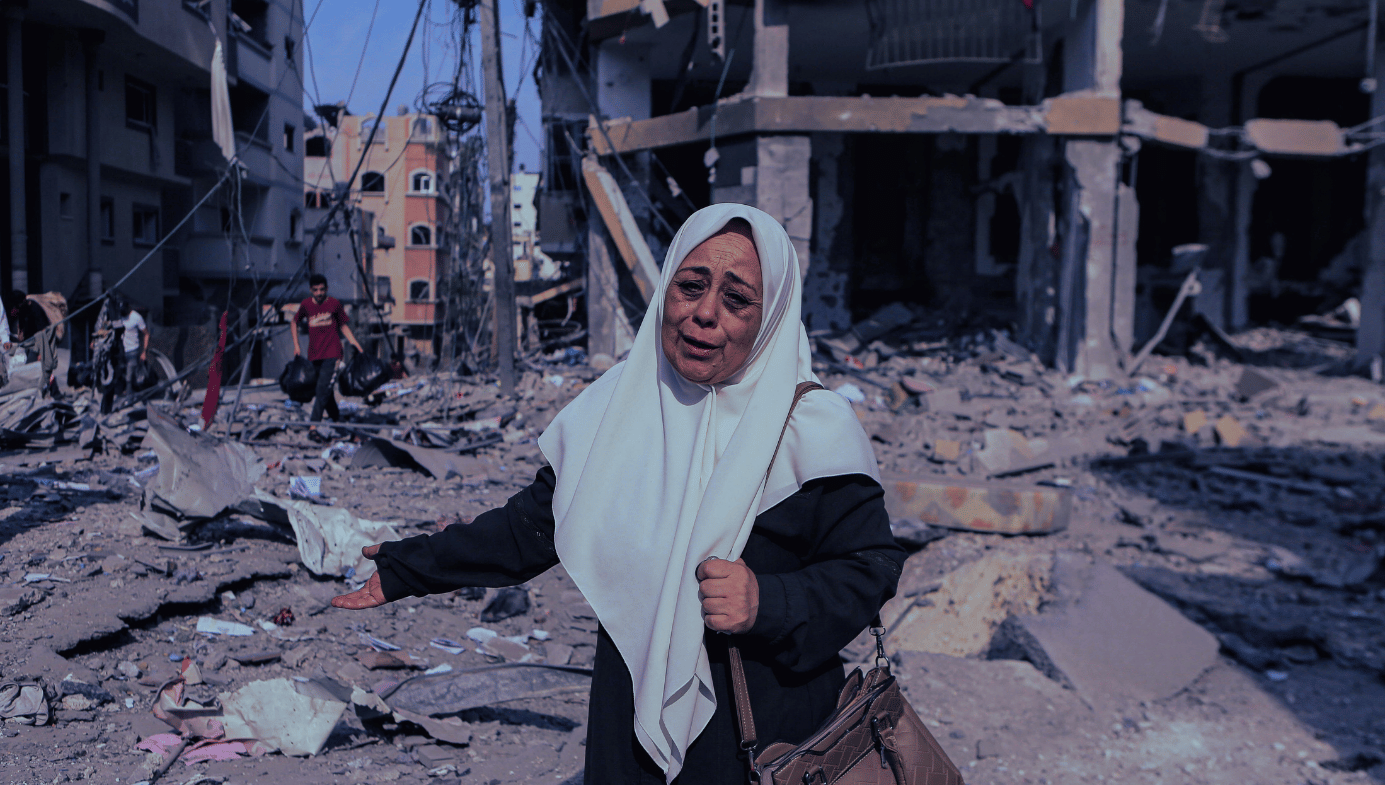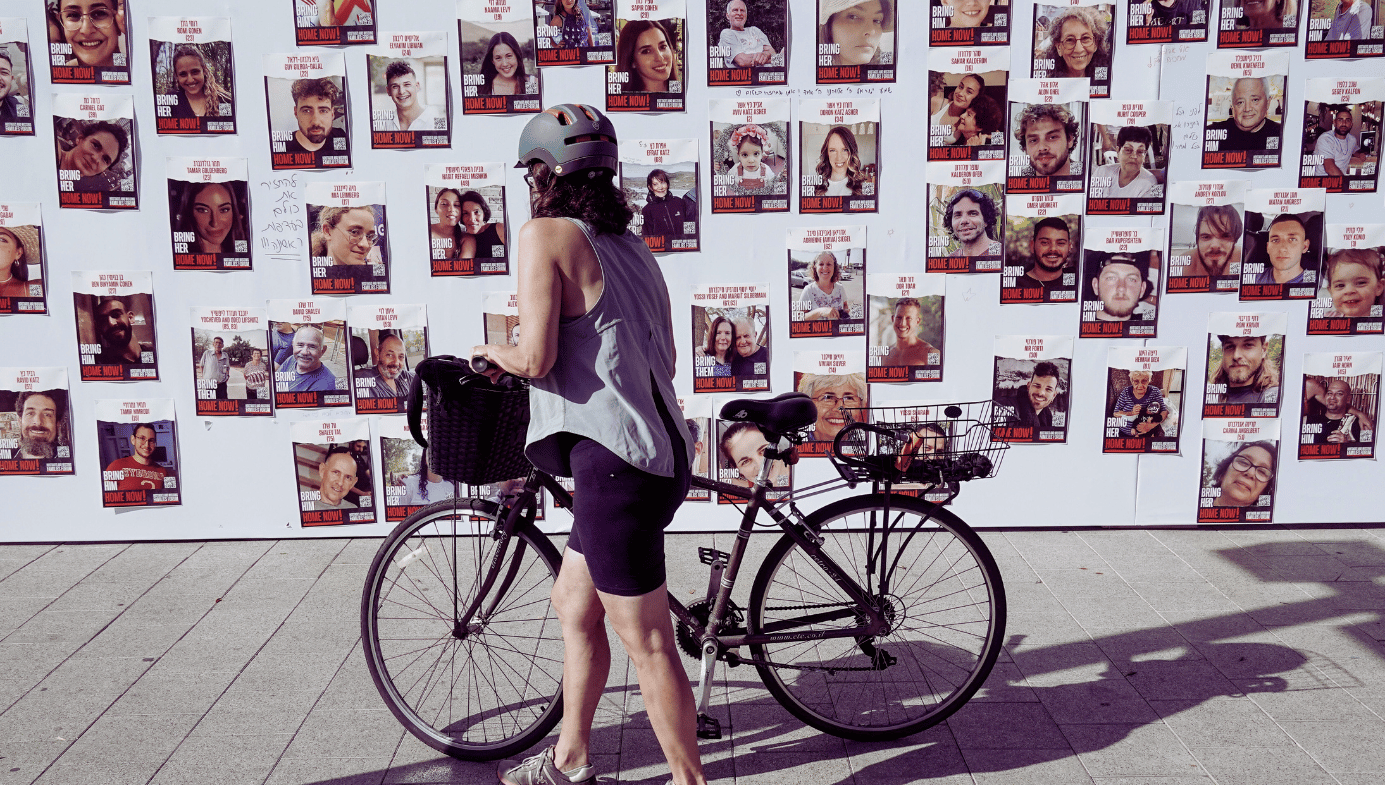Israel
You Can Be Pro-Palestinian or Pro-Hamas. You Can't Be Both.
Make no mistake: dead Israelis are good for Hamas, but dead Palestinians are even better.

There is a fundamental truth at the heart of this conflict that is as uncomfortable as it is revealing. The staunchest supporters of Israel would probably just as staunchly support Palestine if they had been born into a Palestinian Arab and/or Muslim family. And the staunchest supporters of Palestine would probably just as staunchly support Israel if they had been born into a Jewish and/or Israeli family.
For the most part, the principles and values driving people’s view of this conflict are accidents of birth. They are primarily about loyalty, not about who’s right or wrong. Both sides insist that there are no two sides to this conflict. Each claims the higher moral ground. Each insists that you look at the “correct historical context.” And—perhaps most tragic of all—each conflates the leadership of the other side with its people. Collective blame leads to collective punishment. This is an inherently tribal conflict—and the fuel that keeps a tribal conflict alive is polarization: the more people pick sides, the more the conflict rages.
This is not an argument for neutrality or for moral equivalence. There is a difference between being neutral and being objective. Hamas terrorists carried out their brutal, deliberate, inhuman attack on innocent Israeli civilian men, women, children, and even babies. I do believe there is a moral difference between Hamas and Israel’s current leadership: the first deliberately kills children, while the second is willing to accept the death of children as inevitable collateral damage. Perhaps it’s not so much a question of “high ground” as of “ground that’s not as low”?
Either way, all this pertains to the leadership of Gaza and Israel—not to the people who live there.
If you are the parent in the rubble, holding your child’s lifeless body in your arms, you don’t have the luxury of contemplating moral philosophy. You just want justice. It doesn’t matter which side you’re on. As Yuval Noah Harari told Christiane Amanpour in one of the most insightful interviews on this conflict, it is impossible to see yourself as anything but the victim in that moment. The voices around you are calling you the perpetrator, the terrorist, the occupier, or oppressor—but whichever side you’re on, you are the victim. And when millions of people around you and in your social media feed tell you that it’s your fault because you or your neighbors voted for Hamas fifteen years ago, or alternatively that your government forcibly occupies people who experience this every day against their will, it feels unjust. And when world leaders or protestors make public statements of support and sympathy for the other side—for the people who killed your child—you lose even the hope of justice.
“It should be possible,” says Harari, “to understand that you can be victim and perpetrator at the same time… This is a kind of complexity… when you stand thousands of kilometers from the conflict, you can see it. But for the people on the ground, it is impossible. It is just psychologically impossible.”
Often, when an observer comments on a conflict from a distance, those enmired in it will say, “You don’t understand, you’re not on the ground!” But distant observers can often see things more objectively in complex conflicts like this one—in a way that those on the ground cannot. There are good reasons why we don’t let surgeons operate on their own children, we don’t let journalists report on stories in which they are emotionally involved, and we don’t allow victims of crime to avenge themselves on the perpetrators.

Objectivity and some level of emotional detachment are especially important, as difficult as they are to maintain right now, when everyone wants to make a point, but very few want to make a change.
The last four wars between Hamas and Israel have not changed anything. With each conflict, more civilians have died, even more have been displaced, and Hamas has received more funding from its supporters than ever before. This is the fifth war in fifteen years, and the deadliest for Israel since its founding.
What, then, is the goal? Who benefits from the war, this time?
Hamas does. Make no mistake: dead Israelis are good for Hamas, but dead Palestinians are even better.
Western sympathy and support for Palestinians has grown dramatically over the last decade and a half, driven by the devastating images that emerge from Gaza every time there is an Israel–Hamas war. This is why Hamas fires its rockets from schools, mosques, and hospitals. It is why Hamas instructs civilians to gather on the roofs of buildings that house its leaders, so that they may become caught in the crossfire. Hamas has spent millions of dollars building an extensive underground network of tunnels and bunkers to store and transport weapons. Only Hamas members have access to these bunkers, where they shelter while civilians are bombed above ground. When the shelling is over, they re-emerge and take control again. Unlike Israel, Hamas hasn’t built any civilian bomb shelters in Gaza.
Hamas benefits politically and financially from the images of mourning, suffering, and dead Palestinian civilians that are all over your news feed. They have successfully hijacked and exploited the Palestinian people’s pain and suffering to achieve their apocalyptic goal of destroying Israel. They have successfully weaponized the international community’s moral conscience against Israel.
You can be pro-Palestinian, or pro-Hamas. You can’t be both.
Yet, the Israeli leadership, as Michael Spitz writes, is playing into the terrorists’ hands: “The first wave was the attack itself, Hamas knowing full well how Israel would predictably respond: With exponentially larger force and damage. Their broader plan: Draw Israel into Gaza, where troops will be met by an urban guerilla army waiting for them. Hamas’ goal: escalation.”
Israel is currently sending in ground troops. Much of the battlefield will be in Hamas’s underground tunnels, where Hamas is not only prepared to meet them, but has been planning for exactly this kind of urban bloodbath. There will be many dead Israeli soldiers—a win for Hamas. There will be thousands more dead Palestinians—also a win for Hamas.
Unfortunately, it doesn’t matter who bombed Al-Ahli Hospital or what the facts are. Millions of people will continue to believe that the hospital was specifically targeted by the IDF, killing hundreds of innocent people, and that any footage showing otherwise has been doctored by Israel and its allies. All visual proof, they will say, is AI-generated Western propaganda. Arabs are enraged, protesting throughout the region. This is a win for Hamas. The Amman summit with President Biden and Palestinian and Jordanian leaders has been canceled. This is a win for Hamas. The Saudi–Israel deal has been torpedoed. This is a win for Hamas. Israel and its sympathizers can present all the proof in the world that this was a failed rocket launched from Gaza. It won’t matter.
This is what Israel needs to understand. But Israel’s current leadership under Benjamin Netanyahu has been breathtakingly stupid in a number of ways.
Netanyahu has weakened Israel. He is aiming for a single-state solution. Eventually, this bi-national state will have a population with over 50 percent Arabs. If they get the right to vote, Israel will no longer be a Jewish state. If they don’t get the right to vote, Israel will no longer be a democracy. He is leading Israel towards being either a Jewish state or a democracy, but not both. Netanyahu is in denial about this “demographic time bomb” and has continued to build and expand settlements in the West Bank, an action opposed by almost every US administration since Lyndon B. Johnson, all but eradicating any remaining hope of a two-state solution. There is no rational, secular justification for settlement expansion—it’s motivated purely by scripture (see Exodus 23:31-32, Deuteronomy 1:8, and Genesis 15:18-21, among other passages).

Unwavering support for Israel was one of the few issues that enjoyed full bipartisan support from both Republicans and Democrats in the United States for decades. During the Obama era, Netanyahu alienated half that support, turning the Israel question into a partisan issue. His hardliner right-wing antics also created a cleft between Israeli Jews and American Jews, who largely vote Democrat.
With his recent judicial overhaul and dictator-like domestic power grabs, Netanyahu has also polarized the Israeli people, deepening political divides more than ever. This is surely one of the reasons for the massive intelligence failure that led to the deadliest terrorist attack in Israel’s history. Israeli officials like to say this is their 9/11, but it’s not. Unlike 9/11, this attack was expected, predicted, and conventionally executed. All of the Israeli deaths and kidnappings on 7 October were completely preventable.
Netanyahu’s approval ratings were already at rock bottom before this happened. Now, his cabinet ministers have been banned from entering their own hospitals, had coffee thrown at their bodyguards by family members of victims, and been forced away from trying to comfort victims, to shouts of “traitor” and “imbecile,” and told, “You’ve destroyed our country!” Yet, Israel’s prime minister is set on taking the same action he’s taken several times before, which hasn’t worked in the past and won’t work now. As always, it will only make things worse for the people of Israel and Gaza—and better for Hamas. Israelis are angry because they know some of the blood of their loved ones is on his hands.
Since 80 percent of Israelis are now saying that Netanyahu should be held responsible for the failures of 7 October and since he seems to have a knack of fuelling division, his survival as prime minister might well threaten Israel's survival as a democratic Jewish state.
Over the 75 years since Israel’s founding, entire generations of people have been born into this land, on both sides. You may have an opinion about the mistakes their grandparents and great-grandparents made, but none of those who live there today have any other place to call home. Both Israel and Palestine are real, and both are here to stay. No conversation about what happened in the past—however legitimate—has ever (or will ever) lead to a solution.
The only way to change the future is to shape the present. That requires humility, openness, and radical empathy. As philosopher Alan Levinovitz writes, “Every time you don’t believe a claim someone is making, ask yourself what kind of evidence it would take for you to change your mind about the claim. If no such evidence exists, then (a) the claim is literally impossible, or (b) your approach to evaluating the claim is broken.”
Being pro-Israel or pro-Palestine only deepens the tribal divide. But there are two sides to this. On the one hand, there is the side of Hamas’s murderous terrorism and Netanyahu’s callous recklessness. And on the other, there are the Palestinian and Israeli people, who deserve to live with dignity, security, and hope.






